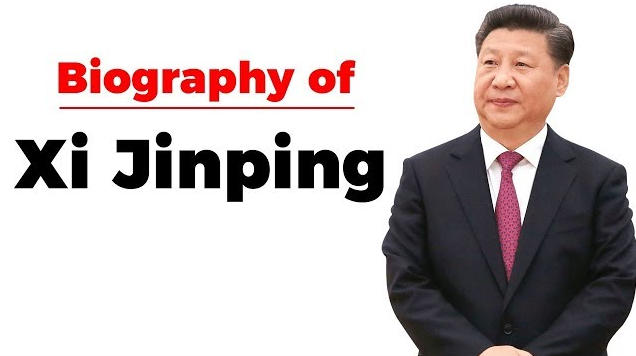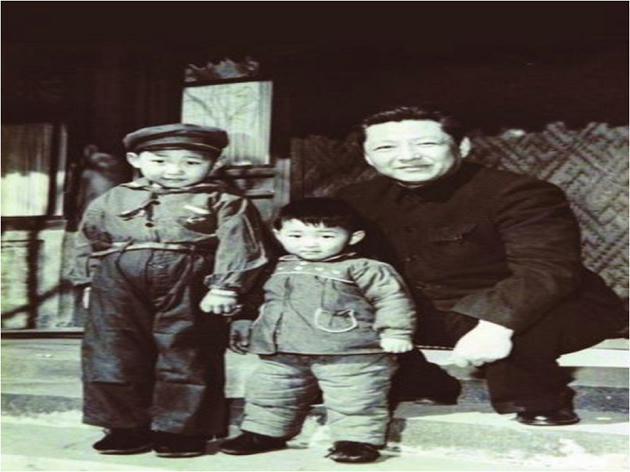Table of Contents
EARLY LIFE
- Xi Jinping was born in Beijing on 15 June 1953, the second son of Xi Zhongxun and his wife Qi Xin. Xi’s father held a series of posts, including propaganda chief, vice-premier, and vice-chairman of the Nationa People’s Congress.
- In May 1966, the Cultural Revolution cut short Xi’s secondary education when all secondary classes were halted for students to criticise and fight their teachers. Student militants ransacked the Xi family home and one of Xi’s sisters, Xi Heping, was killed.
- Later, his mother was forced to publicly denounce his father, as he was paraded before a crowd as an enemy of the revolution. His father was later thrown into prison in 1968 when Xi was aged 15.
EARLY LIFE
- Xi joined the Communist Youth League of China in 1971 after being rejected seven times. From 1973, he applied to join the Communist Party of China ten times and was finally accepted on his tenth attempt in 1974.
- From 1975 to 1979, Xi studied chemical engineering at Beijing’s Tsinghua University. n 1982, he was sent to Zhengding County in Hebei as deputy party secretary of Zhengding County. He was promoted in 1983 to secretary, becoming the top official of the county

THE BEGINNING
- From 1998 to 2002, Xi studied Marxist theory and ideological education in Tsinghua University, graduating from there with a doctorate in law and ideology in 2002.
- In 1999, he was promoted to the office of Vice Governor of Fujian, then he became governor a year later. In 2002, Xi left Fujian and took up leading political positions in neighbouring Zhejiang.
- He eventually took over as provincial party chief after several months as acting governor, occupying a top provincial office for the first time in his career. In 2002, he was elected a full member of the 16th Central Committee, marking his ascension to the national stage.
THE BEGINNING
- While in Shanghai, he worked on preserving unity of the local party organisation. He pledged there would be no ‘purges’ during his administration, On most issues Xi largely echoed the line of the central leadership.
- He was appointed to the nine-man Politburo Standing Committee of the Communist Party of China at the 17th Party Congress in October 2007.
- In March 2008, when Xi was elected as vice-president of the People’s Republic of China.Following his elevation, Xi has held a broad range of portfolios.
LEADERSHIP
- On 15 November 2012, Xi was elected to the posts of general secretary of the Communist Party and chairman of the CPC Central Military Commission by the 18th Central Committee of the Communist Party of China.
- This made him, informally, the paramount leader and the first to be born after the founding of the People’s Republic of China.
- Xi was elected President of the People’s Republic of China on 14 March 2013, in a confirmation vote by the 12th National People’s Congress in Beijing. He replaced Hu Jintao, who retired after serving two terms.
LEADERSHIP
- In November 2013, at the conclusion of the Third Plenum of the 18th Central Committee, the Communist Party delivered a far-reaching reform agenda that alluded to changes in both economic and social policy.
- Xi vowed to crack down on corruption almost immediately after he ascended to power at the 18th Party Congress.
- A few months into his term, Xi outlined the “eight-point guide”, listing rules intended to curb corruption and waste during official party business; it aimed at stricter discipline on the conduct of party officials. Xi also vowed to root out “tigers and flies”, that is, high-ranking officials and ordinary party functionaries.
LEADERSHIP
- Within the first two years of the campaign alone, over 200,000 low-ranking officials received warnings, fines, and demotions.
- Xi’s anti-corruption campaign is seen by critics as a political purge on a scale not seen since Chairman Mao, with the aim of removing potential opponents and consolidating power.
- Since Xi became the General Secretary of the CPC, censorship has been significantly stepped up. In July 2017, the character Winnie the Pooh was blocked on Chinese social media sites following the spread of an internet meme in which photographs of Xi.
- Xi has taken a very strong stand to control internet usage inside China, including Google and Facebook, advocating Internet censorship in China as the concept of “internet sovereignty”.The censorship of Wikipedia has been stringent; as of April 2019, all versions of Wikipedia have been blocked in China
ABSOLUTE POWER
- Political observers have called Xi the most powerful Chinese leader since Chairman Mao Zedong, especially since the ending of presidential two-term limits in 2018.
- He has centralised his power and created working groups with himself at the head to subvert government bureaucracy, making himself become the unmistakable central figure of the new administration.
- The Third Plenum held in 2013 also saw the creation of the National Security Commission of the Communist Party of China, another body chaired by Xi which commentators have said would help Xi consolidate over national security affairs.
ABSOLUTE POWER
- Xi has also been active in his participation in military affairs, taking a direct hands-on approach to military reform.
- Xi has had a cult of personality constructed around himself since entering office with books, cartoons, pop songs and dance routines honouring his rule.
- On 17 March 2018, the Chinese legislature reappointed Xi as president, now without term limits; Wang Qishan was appointed vice president. The following day, Li Keqiang was reappointed premier.
FOREIGN POLICY
- A Chinese nationalist, Xi has reportedly taken a hard-line on security issues as well as foreign affairs, projecting a more nationalistic and assertive China on the world stage.
- Under Xi China has also taken a more critical stance on North Korea, while improving relationships with South Korea.China–Japan relations have soured under Xi’s administration.
- Xi has called China–United States relations in the contemporary world a “new type of great-power relations”,.
FOREIGN POLICY
- The U.S. has been critical of Chinese actions in the South China Sea. In 2014, Chinese hackers compromised the computer system of the U.S. Office of Personnel Managemet.
- Xi has cultivated stronger relations with Russia, particularly in the wake of the Ukraine crisis of 2014.
- Relations with the U.S. soured after Donald Trump became president in 2016. Since 2018, U.S. and China have been engaged in an escalating trade war.



























 WhatsApp
WhatsApp